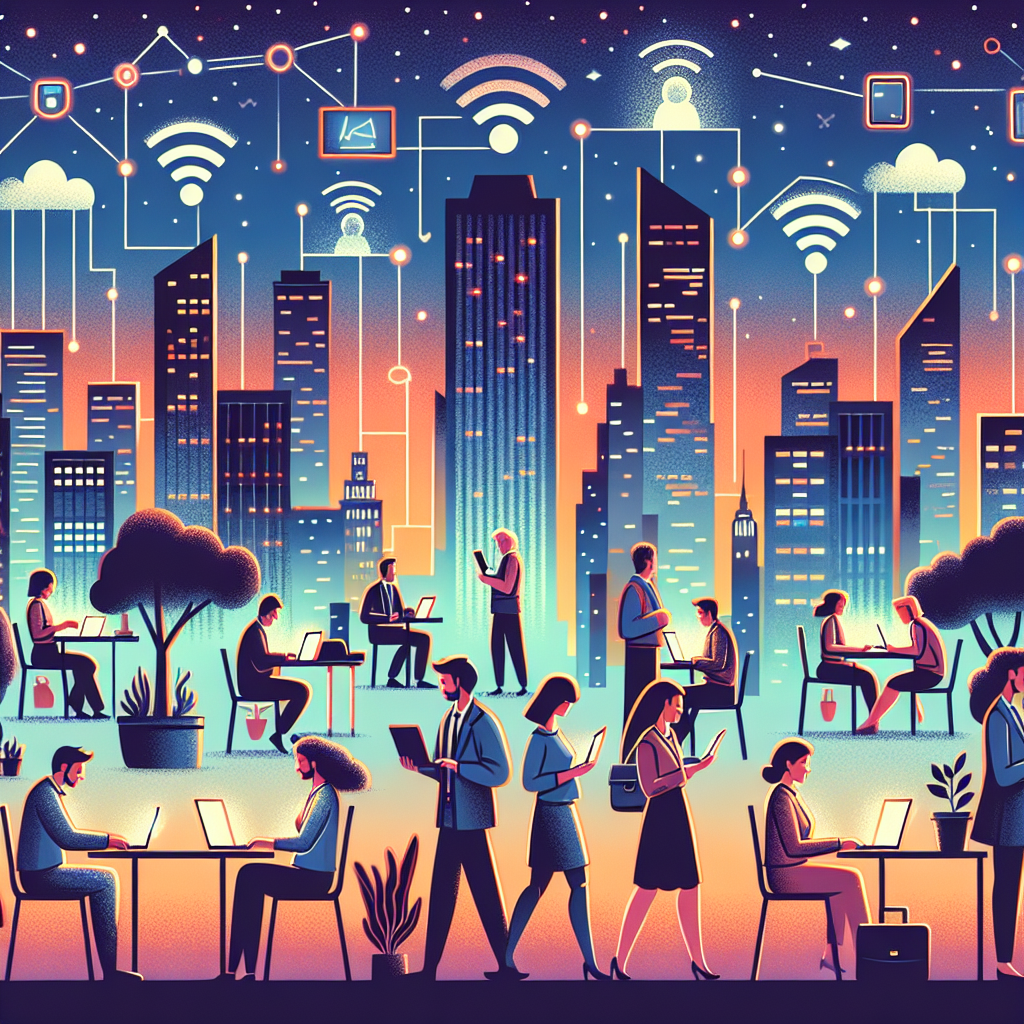Title: The Rise of the Gig Economy: Pros and Cons for Modern Workers
In recent years, the gig economy has transformed the traditional landscape of work. Characterized by short-term, flexible jobs rather than permanent positions, this new economic model allows workers to engage in various freelance and on-demand jobs. Platforms like Uber, Airbnb, Fiverr, and Upwork have become household names, representing a significant shift in how labor markets function around the globe. As the gig economy continues to grow, it brings with it a myriad of opportunities and challenges for modern workers.
### The Pros of the Gig Economy
#### Flexibility and Autonomy
One of the most touted advantages of the gig economy is the flexibility it offers. Workers can choose when, where, and how much they want to work. This level of autonomy allows individuals to balance their professional and personal lives better, accommodating those with irregular schedules or caregiving responsibilities.
#### Diverse Opportunities
The gig economy enables workers to explore various industries and roles without being tied down to a single employer. This diversity can lead to personal growth and skill development across different domains. For many, it is an opportunity to pursue passion projects alongside traditional job opportunities.
#### Potential for Higher Earnings
For some, gig work can lead to higher earnings, especially if they possess in-demand skills. Skilled freelancers can set competitive rates and negotiate their terms, sometimes earning more than they would in a traditional job setting. Additionally, gig work supplements income for those with full-time jobs, offering financial flexibility.
#### Entrepreneurial Pursuits
The gig economy fosters an entrepreneurial spirit, encouraging individuals to market themselves and their skills. Platforms provide the infrastructure needed to reach clients and customers, reducing the traditional barriers to starting a business.
### The Cons of the Gig Economy
#### Lack of Job Security
The flip side of flexibility is the lack of job security. Gig workers often face inconsistent income streams and limited employment benefits. The absence of contracts and job stability can be a significant drawback, especially during economic downturns or personal emergencies.
#### Limited Benefits
Traditional employment usually comes with benefits such as health insurance, retirement plans, and paid leave. Gig workers, classified as independent contractors, generally miss out on these perks. This lack of a safety net raises concerns about long-term financial security and healthcare access.
#### Isolation and Competition
Isolation can be an issue, as gig workers often miss the social interactions that a traditional office environment provides. The gig economy’s digital nature means competition is fierce, sometimes driving down wages and making it difficult to stand out in a crowded market.
#### Regulation and Rights
The gig economy often lags in terms of labor rights and regulations. Many jurisdictions have unclear policies regarding gig work, leading to exploitation concerns. Gig workers may find themselves without legal protections or proper channels to resolve disputes with clients or platforms.
### Navigating the Gig Economy
As the gig economy evolves, both workers and policymakers must navigate its complexities. Workers should focus on building diverse skill sets, leveraging technology, and developing personal brands to stay competitive. Policymakers, for their part, need to update labor laws to ensure gig workers have access to benefits and protections similar to those of traditional employees.
The rise of the gig economy represents a significant shift in the way people work and live. It offers unparalleled flexibility and opportunities but also introduces challenges that require thoughtful navigation and adaptation. As this economic model continues to mature, it remains critical for all stakeholders to address its shortcomings while embracing the innovation it brings.














Leave feedback about this
You must be logged in to post a comment.